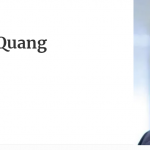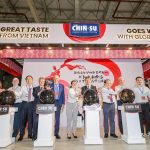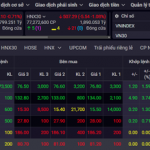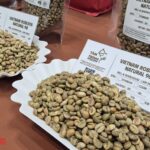NUMBER OF ‘FIXED’ STORES FROM Q1 TO Q2/2024
In its Q2/2024 consolidated financial statement, Masan Group (stock code: MSN) announced that WinCommerce (WCM) had turned a profit in June.
This “good news” came with another notable figure: the number of new stores from December 2023 to June 2024 was 40, bringing the total number of sales points to 3,673 – unchanged from the end of Q1.
This does not mean that WCM did not open any new stores during Q2. They opened new ones and closed down unprofitable ones.
Masan has upgraded and renovated Win (targeting urban consumers) and WinMart+ Rural (serving rural consumers) stores. These two models outperform the traditional model.
Vietcap’s report from the investor meeting on July 26 revealed that WCM has been cautious about opening new stores, instead focusing on improving existing stores and renovating them according to the WIN model.
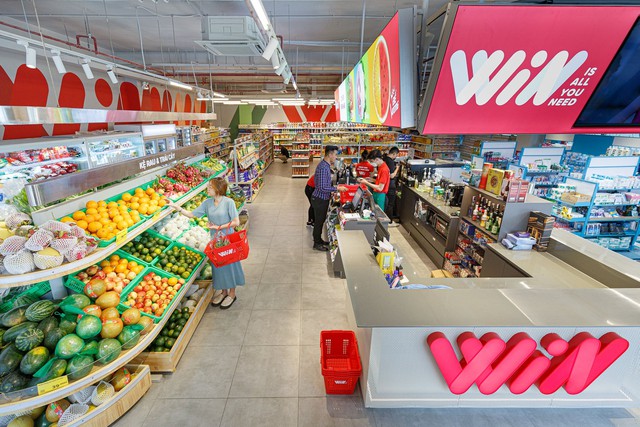
This is one of the reasons WCM turned a profit as the operational efficiency of the stores improved significantly. Thanks to the increased number of customers, LFL (Like for Like) revenue increased by 9.7% year-over-year, with total revenue reaching nearly VND 2,800 billion. At the same time, cancellation costs decreased.
“The management team believes that WCM can achieve positive net profit in Q3 and Q4/2024 if WCM maintains a 9% LFL growth rate in these two quarters,” Vietcap said.
Therefore, in the short term, WCM will focus on improving LFL growth in terms of customer numbers and average bill value. In the medium term, WCM plans to increase the contribution of private labels to total revenue.
In reality, since 2023, when the modern retail industry faced difficulties, instead of executing the plan to open 800-1,200 new stores, WinCommerce decided to shift its focus from pure network expansion to store renovation and operational efficiency improvement to consolidate the company’s competitiveness and profitability.
This move supported WCM to achieve positive EBIT in Q3 and Q4/2023 and Q1/2024 and led to even better results in Q2/2024.
However, as shared by the General Director of WinCommerce at the AGM regarding the completion of the restructuring and the return to the expansion strategy, the company plans to accelerate the pace of store openings in the second half of 2024 with about 100 new minimarts per quarter, equivalent to opening an average of one store per day.
THE JOURNEY TO PROFITABILITY
“When will WinCommerce be profitable?” This question seems to be on everyone’s mind since the retail chain was born and operated by Vingroup, and even more so after it was sold to Masan, as an expectation of the “talent” of the billionaires.
“For WinCommerce, the clearest reflection of efficiency is net profit after tax. Although WinCommerce has not achieved this yet, it has a roadmap to make it happen,” said Nguyen Dang Quang, Chairman of the Board of Directors of Masan Group, in the 2023 Annual Report of Masan Group (MSN), sharing his “sympathy” at the Annual General Meeting in April 2024, hoping to bring the retail segment alongside the “cash cow” consumer segment.
According to the Chairman of Masan, currently, WCM’s modern trade value market share is 25%, and its network market share is 50%, while 90% of the system’s stores have reached EBITDA breakeven, compared to 5% when they acquired this business.
“The key to success lies in developing innovative store models, selecting product portfolios suitable for each locality, but still keeping it simple and providing a unique shopping experience to serve consumers at all income levels,” Mr. Quang summarized.
In addition, Masan Group will digitize and upgrade the supply chain infrastructure to accurately and flexibly serve the needs of customers at each store, with specific SKUs, while expanding personalized services using artificial intelligence/machine learning (AI/ML) through the Win Membership Program.
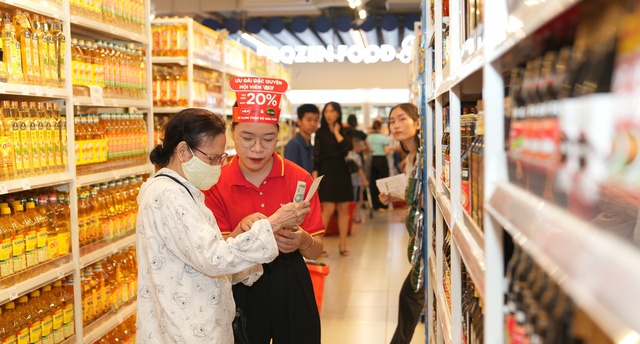
Masan’s two “trump cards” are the Win Membership Program and the Supra logistics platform, which have proven effective. The membership model provides Masan with detailed information about actual consumption, while Supra optimizes supply chain efficiency to ensure cost competitiveness across the entire chain.
It is known that WCM’s customer acquisition cost is still zero, and the basket value of members is twice that of non-members. On average, members shop four times a month. Meanwhile, Supra reduced transportation costs by 11% for non-refrigerated products and 11% for fresh products.

Masan is aiming for a broader platform, Win Digital, which combines the Win Membership Program and Supra – the key, according to billionaire Quang, to reaching 30-50 million consumers without “burning money.”
Win Digital integrates personalized services using artificial intelligence into the demand forecasting and inventory management model. The project has been piloted on 20 SKUs and 111 stores, yielding positive results, with product availability increasing from 92% to 95% and inventory days decreasing by four days. By the end of the year, all products and stores will operate on the new automated algorithm, enhancing supply chain efficiency, driving revenue growth, and shortening the cash conversion cycle.
In terms of network expansion, WCM has reduced store investment costs by 40% by optimizing not only negotiations to obtain larger purchase volumes but also equipment optimization, providing only what is needed instead of excess, resulting in a 30-40% reduction in CAPEX (capital expenditure) in recent years.
EXPECTATIONS FOR PRIVATE LABELS
To expand its sales points without falling into the “the more we do, the more we lose” trap, WinCommerce declared a price competitiveness strategy at the AGM. The company will maintain a price index that is equal to or competitive with the market. This is based on the support of “homegrown” products, an increase in private labels, and Masan Consumer brands.
According to Masan, with the strength of its ecosystem, production capabilities, and brand-building expertise of Masan Consumer, WCM will collaborate to introduce 40 private labels.
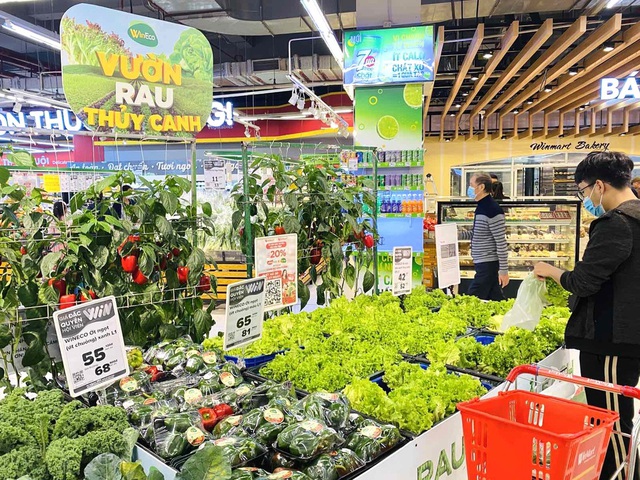
Currently, private label revenue accounts for less than 10% of WCM’s total revenue. However, the profit margin of private labels in WCM is 3-5% higher within each MCH group. Moreover, private label products follow a “value for money” strategy, so their selling prices are 5-10% lower than branded products, and some are even 20% cheaper.
These factors give billionaire Nguyen Dang Quang confidence in building a private label strategy, and he expects private labels to contribute 30% to WCM’s total sales volume within the next five years.
Masan implements multiple strategies to benefit consumers in 2023.
In the backdrop of the challenging economic landscape in 2023, consumer retail giants like Masan Group have implemented a series of practical strategies to share the hardships and bring tangible benefits to consumers…


